ВУЗ: Не указан
Категория: Не указан
Дисциплина: Не указана
Добавлен: 26.04.2024
Просмотров: 170
Скачиваний: 0
ВНИМАНИЕ! Если данный файл нарушает Ваши авторские права, то обязательно сообщите нам.
THINK – PAIR - SHARE
Purpose:
Structured way of developing ideas and thoughts
Set Up:
46
Nothing specific
How it works:
See below
Find out more http://www.eazhull.org.uk/nlc/think,_pair,_share.htm
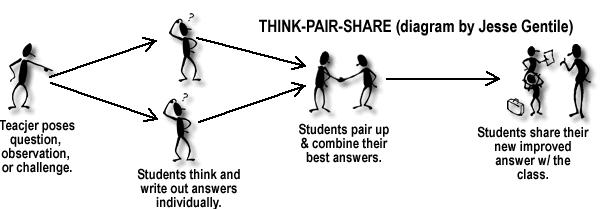
THREE STEP INTERVIEW
Purpose:
Structured way of developing ideas and thoughts
Set Up:
Pods of four
How it works:
47
Divide four ‐ member groups into two pairs: A and B, C and D. In step 1, A interviews B
while C interviews D. In step 2, reverse roles: B interviews A while D interviews C. In step 3,
share ‐ around: each person shares information about his/her partners in the group of 4. (From http://drscavanaugh.org/discussion/inclass/discussion_formats.htm)
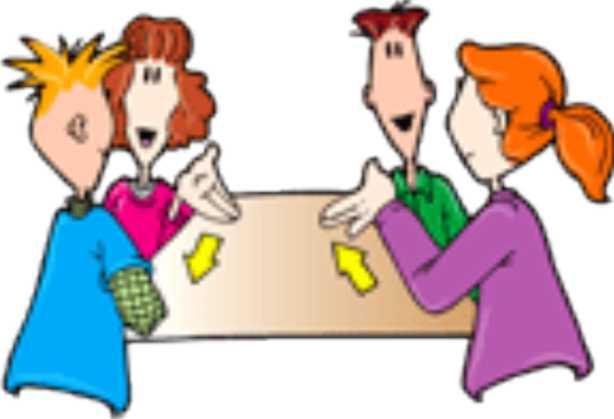
Classroom activities to promote learning how to learn
This section contains activities offered by Watkins et. al. (2000). The focus is on learning about learning. The purpose is to help pupils explore, reflect on and learn about the processesof learning.
48
The principles about learners and learning which underlie these activities are as follows:
1 An effective learner is a person who has gained an understanding of the processes involved in learning and is able to apply that understanding in learning across a wide range of contexts.
2 Effective learning involves processes of:
-
making connections about what has been learned in different contexts -
reflecting about one’s own learning and learning strategies -
exploring how the learning contexts have played a part in making the learning effective -
setting further learning goals -
engaging with others in learning.
The activities in this section are not, therefore, related to particular subject areas but, rather, to the processes of learning, and of learning in different contexts. The overall aim is to enhance pupil learning across a range of different contexts. The activities are structured to have a sequence and a progression. They have been designed to be pupil and teacher friendly and could be used with secondary or junior pupils, but they would need adaptation for younger learners.
When planning for effective learning, the tasks and processes need to promote:
-
active learning -
collaborative learning -
responsibility in learning -
learning about learning.
In order to achieve this the activities are carefully structured around stages in the learning cycle.
Do The learners engage in a variety of tasks and processes which require reflection, collaboration and group work.
Review The learners reflect on the activity and evaluate the cognitive and affective aspects which may have helped or hindered their learning both as individuals and as part of the group.
Learn The learners process the insights and understandings which emerged in the review stage about the learning. These may touch on:
why
how
what
how
when, who with, where
purposes in learning
do strategies in learning
result effects in learning
feel feelings in learning
context of learning
This then leads to learners developing new strategies and/or revising their old strategies for learning.
Apply Learners reflect on and make plans about using their new or revised strategies in different learning contexts. The role of the teacher is crucial in these activities in promoting effective learning
Do The teacher encourages and supports the learners in engaging actively in the activities, tasks and processes.
Review The teacher facilitates the reflection, discussion and feedback and supports the emergence of new understandings and insights and the learners’ evaluation of strategies.
49
Learn The teacher helps the pupils to make the learning explicit, drawing out the insights and understandings that emerged in the review stage, helping to compare and contrast present strategies and how they can be revised and developed for the next stage.
Apply The teacher helps the learners to plan future action differently in the light of new understanding, by promoting transfer of learning, planning of strategies for specific situations and contexts, and goal-setting.
HOW DO WE LEARN BEST?
This review activity can help you: (Developed from Gibbs G (1981), Teaching Students to Learn: a
student-centred approach, Milton Keynes: Open University Press)
-
to start to think about your own learning -
to spot some things that influence your learning -
to see some things about yourself as a learner -
to lead on to a discussion of how to improve your learning.
50
Review
1 On your own, think back to a past experience of learning where the experience was not a good one. It could be at school, in sports or in a hobby – but it was an occasion when you were wanting to learn and it was not such a good learning experience. Maybe you felt frustrated in the learning, or you did not learn what you wanted to.
Remember it in detail and then think about what made this not such a good learning experience. Write down the things that caused it to be like that. [3 minutes]
2 Now do the same for a good learning experience – where you learned what you wanted to, perhaps you enjoyed it a lot, were very involved, and so on.
What was it that made the learning so good? Write down some of the things. [3 minutes]
3 In pairs, tell each other about the experiences you chose. Explain why the experiences were good or not.
Look for similarities and differences between what you have said. Are there some things that were alike in your experiences? Are there ways in which your preferences differ? [10 minutes]
4 In the whole group, collect up some of the comments everybody has made.
Then ask how we explain what makes a good learning experience and what makes a not so good learning experience.
Learn Did any of the following areas emerge when explaining the good and not so good learning experiences?
-
Why you were learning, anything about your purpose? -
How did you do it, the strategy you adopted as a learner? -
What results, the effects of your learning, on you and on others? -
How did you feel regarding this learning–before, during and after? -
When, where, who you were with for this learning, the context you were in?
Did you find anything interesting about your own or other people’s learning?
Apply Following this activity, is there something new that you want to try out in your learning? Which situation will you choose?
When?
When will you discuss with others what happened when you tried something new?
LEARNING STRATEGY QUESTIONNAIRE
How do you go about your learning? This activity can help you to spot some of your strategies in learning, and then give you a chance to think about them.
Do Read each of the six statements below, and for each one decide whether you:
Strongly Disagree mark under the column SD
51
Disagree mark under the column D
Don’t Know mark under the column DK
Agree mark under the column A
Strongly Agree mark under the column SA
-
I want to take only those subjects in school that would help me to get a job, not those that might be more interesting
2 I find that my school work can give me a good feeling inside
3 I try to obtain high marks in all my subjects because I like to beat the other kids
4 I tend to study only what the teacher says, no more
5 While I am learning things in school, I try to think of how useful they would be in real life
6 I have my way of keeping my books, notes and other class things so that I can find them easily
SD D DK A SA
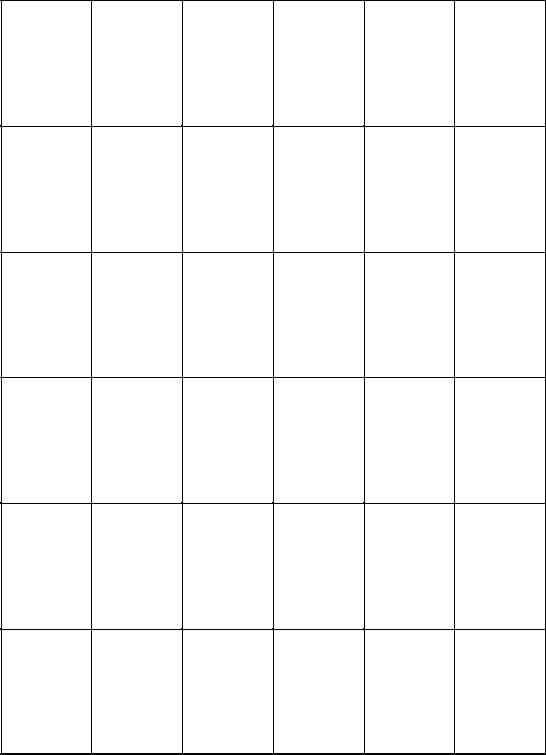
a
b
c
d
e
f
Did you find yourself strongly agreeing with one of the above six more than the others?
Which was it: a, b, c, d, e or f (see right-hand column)?
Now try some more:
52
7 If I do badly on a test, I worry about how I will do next time
8 I say what I think is right, even though others may know more than me
9 I really want to do better than anyone else in my school work
10 I learn best when I memorise things by heart
11 In reading new stuff, I am reminded of things I already know and see them in a different way
12 I try to plan my work all through the school year so that I get the best grades I can
SD D DK A SA
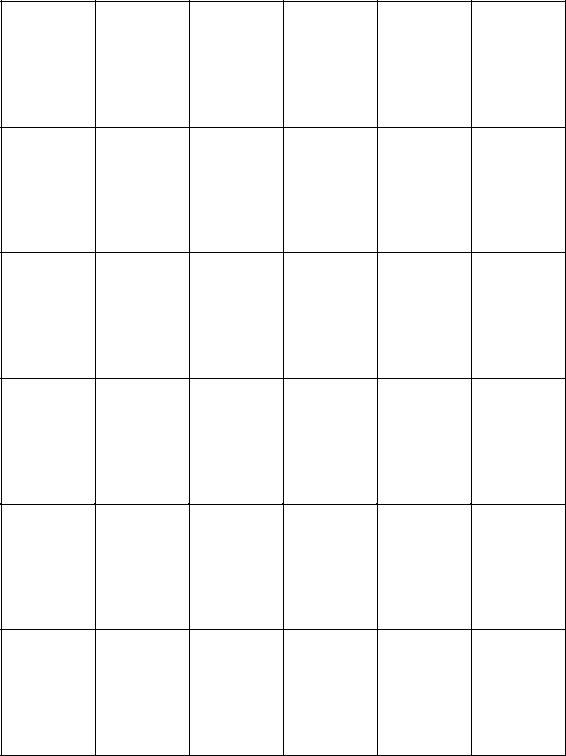
a
b
c
d
e
f
Again, did you find yourself strongly agreeing with one of the above six more than all the others? Which was it: a, b, c, d, e or f?
Give yourself:
two points for a one point for an minus one for a minus two for a
‘Strongly Agree’ ‘Agree’ ‘Disagree’ ‘Strongly
Disagree’
Now make a total of your points in each of the six types so far on the chart.






| Statement | Points | Statement | Points | Total so far |
| | | | | |
| 1 | | 7 | | a |
| | | | | |
| 2 | | 8 | | b |
| | | | | |
| 3 | | 9 | | c |
| | | | | |
| 4 | | 10 | | d |
| | | | | |
| 5 | | 11 | | e |
| | | | | |
| 6 | | 12 | | f |
| | | | | |


























Here are a few more, to see whether there is a pattern in what you say:
53
13 The only reason I can see for working hard in school is to get a good job when I leave school
14 I become interested in many school subjects when I work at them
15 I like the results of tests to be put up in class so that the others can see how much I beat them by
16 I prefer learning facts and details about things to trying to understand them
17 I like to form my own ideas on a topic before I feel good about it
18 I try to do all my assignments as soon as they are given to me
SD D DK A SA
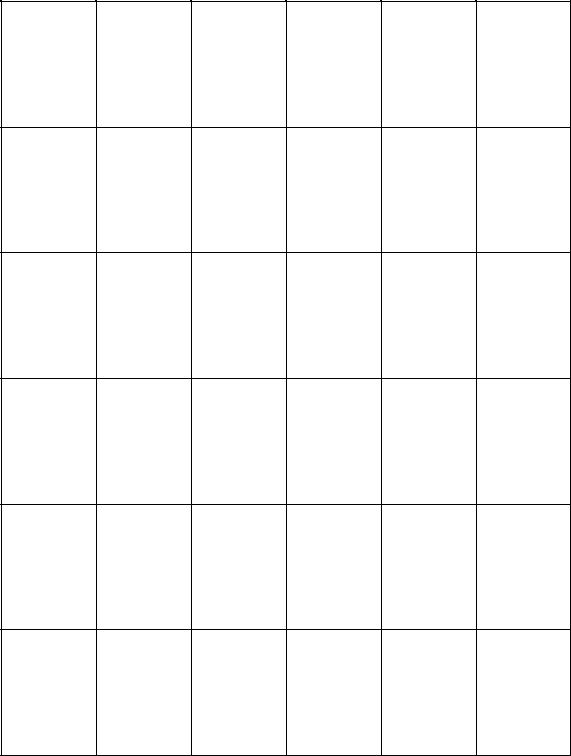
a
b
c
d
e
f
| 19 Even when I have studied hard for a test, I | | | | | | | | ||
| SD | D | DK | A | SA | | | |||
| worry that I may not be able to do well on it | | | |||||||
| | | | | | | | |||
| 20 | I find that learning some topics can be | | | | | | a | | |
| | | | | | | | |||
| really exciting | | | | | | | | ||
| 21 | I would rather do well in school than be | | | | | | b | | |
| | | | | | | | |||
| popular | | | | | | | | ||
| with my class mates | | | | | | c | | ||
| | | | | | | | | ||
| 22 | In most subjects I do enough just to pass, | | | | | | | | |
| and no more | | | | | | d | | ||
| | | | | | | | | ||
| 23 | I try to relate what I learn in one subject | | | | | | | | |
| to other subjects | | | | | | e | | ||
| | | | | | | | | ||
| 24 | I review soon after most lessons to make | | | | | | | | |
| sure I understand what was taught | | | | | | f | | ||
| | | | | | | | | ||
54
25 Teachers should not expect us to work on things that are not going to be tested
26 One day I might be able to change things in the world that I think are wrong
27 I will work for top marks whether or not I like the subject
28 It is better for me to learn facts and details than to try to understand general ideas
29 I find that most new things taught in school are interesting and I may even spend extra time finding out more about them
30 When a test is returned, I correct all the errors I made and try to see why I made them
31 I only want to stay in school long enough to get a good job
32 I believe that school should help me form my own ideas
33 I see doing well in school as a competition, and I am determined to win
34 I don’t spend time on learning things that I know won’t be on the tests
35 I spend my free time finding out more about interesting things that have been talked about in class
36 I try to read all the things the teacher says we should
| SDD | DK A | SA |
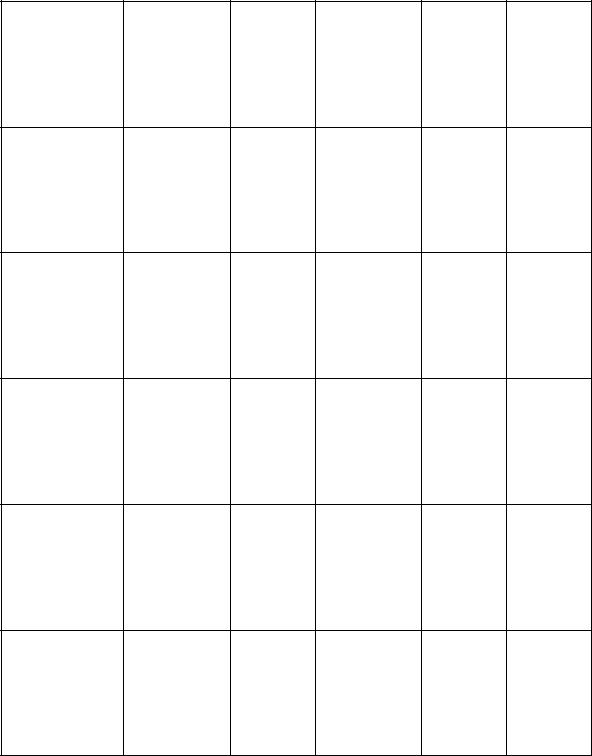
a
b
c
d
e
f
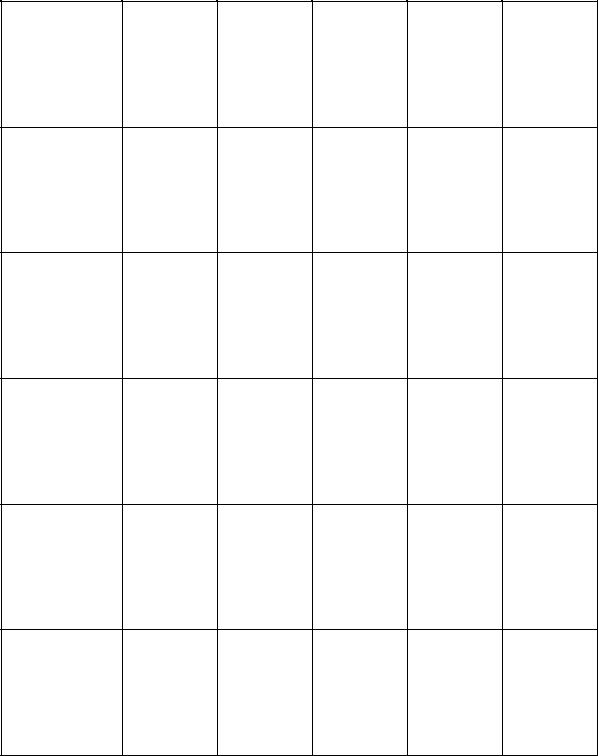
SD D DK A SA
a
b
c
d
e
f
Now make a total of your points in each of the six types on the chart.
55
| Total | Statement | Points | Statement | Points | Statement | Points | Statement | Points | Total |
| from | | | | | | | | | |
| other | | | | | | | | | |
| page | | | | | | | | | |
| | 13 | | 19 | | 25 | | 31 | | a |
| | | | | | | | | | |
| | 14 | | 20 | | 26 | | 32 | | b |
| | | | | | | | | | |
| | 15 | | 21 | | 27 | | 33 | | b |
| | | | | | | | | | |
| | 16 | | 22 | | 28 | | 34 | | b |
| | | | | | | | | | |
| | 17 | | 23 | | 29 | | 35 | | e |
| | | | | | | | | | |
| | 18 | | 24 | | 30 | | 36 | | f |
| | | | | | | | | | |

